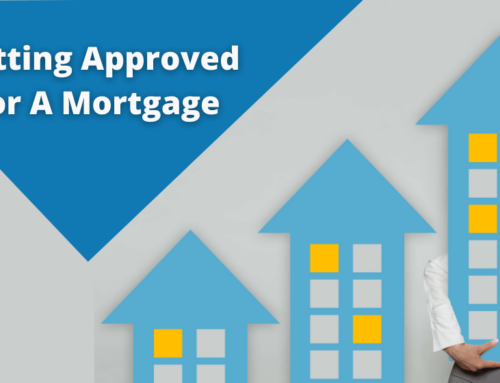It is everyone’s dream to one day have a house they can call their own. We are here to help you determine whether it is the right time for you to buy a house and what you should expect in the process.
Credit
Be sure to establish and build your credit. Although amazing credit is not necessary for all instances, it will help you immensely. Have at least 2 trades for 3 years with a good repayment history and low utilization i.e. pay off your revolving credit balances and don’t miss your payment date. If you are not able to pay off your balance each month keep the balance below 75% and pay off as much as you can afford to ensure you make the minimum payment on time each month. Avoid frequent inquiries as this will bring your credit score down and use credit monitoring services if you want to check your credit (there are many free ones out there that do not hurt your credit).
The Down-Payment
In Canada, the minimum down payment required is 5% of the first $500000 and 10% of the rest. At $1 million purchase price, the requirement jumps to 20% across the board. Your down payment source is important. A gift is acceptable to use for a down payment, but you need to ensure that it is from an immediate family member and that it is not repayable (aka “a loan”). If you do borrow funds, you may still be able to use them for the down payment, but it will depend on the strength of your application when you apply for the mortgage. There are programs and strategies to help build this faster, but you will require a down payment in all cases. It is prudent to build a budget to include a savings component. Get to know your First Time Home Buyer options and note that there is not just one! Here are links to the Federal and BC First Time Home Buyer programs.
Make Sure You Have Income
Ensuring you have income to support the mortgage payment and any costs associated with homeownership may sound like common sense but knowing specifically what the Underwriters of the mortgage are looking for is key. They look for affordability by assessing the amount of your income versus the mortgage payment to see if you can easily afford it or if you will be struggling each month. If you are struggling, you will be more susceptible to missed or late payments which will, in turn, lead to other issues i.e. derogatory credit and late fees which are all added costs and could lead to. On top of affordability, your tenure is important both in the industry and also with your current (past) employer(s). Tenure provides insight into the security and stability of your income used to support the mortgage payment ongoingly. Even, the nature of the industry and employer are scrutinized as viable sources to provide you with the level of income being qualified.
Determining Your Home Purchase Budget
Identifying what your budget is before searching for a home is the most essential step in the process. This step goes by a number of names such as “Preapproval” or “Prequalification”, but the essence of this step is to determine what size of mortgage you will qualify for. Taken with your down payment, you will know what your maximum purchase price will be. In some cases, your Real Estate Agent may not even set up a search or take you to private showings unless you have identified your budget. By doing this step, it means that everyone involved with you in the home-buying process knows you are serious. It will also give you an idea of your boundaries. Of course, Lenders have different rules so the amount you prequalify for at one Lender could differ significantly from another lender which is why it is good to identify your budget but great to understand the factors that will influence your approval (i.e. if there is a higher strata fee, it will decrease the amount you qualify for in mortgage). The budget is an estimate of what you will qualify for, but it is only a guideline as many other factors will affect the actual approval.
Know What You Can Afford
During this stage, you should be exploring your mortgage options with your financial professional. You want to get a good sense of what it will actually be like once you have your mortgage. This includes your payment, prepayment terms, interest penalties and even fees. Knowing what you can afford sounds like getting prequalified, but everyone has a different comfort level when it comes to their total outlay for their home. What you “feel” is comfortable without overextending yourself is the final litmus test for every mortgage. Although you may qualify for $3000/month you may not be comfortable paying $3000/month for five years. It is important to gain a good understanding of how the mortgage will fit into your life.
The Home Search
Every good Real Estate Agent will ask you the specific criteria you are looking for in a home. It is important to have a list of the “must-have” and “nice-to-have” items. If you are searching with a partner, it is important to deliberate on the items before you put them on your lists, so you are not distracted during the search. Sometimes you will see things that become part of one of the lists that you never thought about before and your lists can change but keep in mind that the more “must-have” items you have, the lower the selection you will have. So ask of each “must-have” item: “if I did not have this, could I still live here?” and answer genuinely.
Making An Offer and Subject Removal
OK, so you have found the perfect house, what next? Now it is time to put down an initial offer with your terms and conditions a.k.a. “Subjects”. Common examples include “subject to financing” and “subject to inspection” by a specific date. You should discuss the subjects to include with your Real Estate Agent when you are writing the offer. Once you have written the offer, your Real Estate Agent will submit your initial offer. The seller will have some time to respond and can choose to accept, counter or decline your offer. If there is a counter-offer, you may accept, counter or decline and so the process goes. Once an accepted offer has been signed by all parties, the clock starts ticking to satisfy all the subjects.
Home Inspection
Sometimes a home inspection is not warranted, but there are two major reasons why they are recommended:
- If any issues pop up during the inspection, you can negotiate the price of the house with the seller, keeping in mind the money you would have to spend on the house to make it perfect
- There could be problems that might cost thousands of dollars to fix, ranging from structural damage to major pipeline issues. If any of these turn up, you might have to find another house
A good Home Inspector will go through the property with you and discuss items that are in immediate need of repair and also discuss any items that may need some attention down the line. Spending a few hundred dollars now could save you thousands in the long run.
Financing
Once you have an accepted offer, your Prequalification becomes a “live” deal where the terms i.e. amount, payment, interest rate, amortization etc. are fixed in and committed to you. The Best tip is to get all of your documents to your Mortgage Professional before you start making offers as some documents may take more time than you have to remove subjects.
Strata Properties
If you are offering on a property that is part of a strata i.e. condo or townhouse, you should review the strata documents to ensure there are now pending deficiencies coming up that will cost you a lot of money. By reviewing the documents, you will also be able to get a good sense of how the maintenance of the property has been managed (or mismanaged) as there is a direct relationship. You will also be able to see the “financial health” of the Strata such as what strata fees are being spent on and what kind of contingency reserve fund (CRF) is available in case of unplanned expenses.
The Firm Offer
Phew, we made it! You went through budgeting, the home search, the offer and now you are ready to lock in the offer and complete the contract. As the subjects are satisfied, they are “removed” and when all of them are satisfied, you have a firm and binding offer. At this point, you will need to ensure you have funds ready for deposit. Commonly (but not set in stone), 5% of the purchase price will be put on deposit to secure the contract and be held in good faith by a third party until completion.
Completion
With a firm offer in hand, the seller (and their mortgage) along with other charges versus the title of the home will have to be removed so that you receive the home with a clear title. In addition, your information and the information on the new mortgage will need to be registered against the title of your new home. This part of the process is completed by the Conveyancer (generally a Notary Public/Lawyer). They will also handle any receipt or disbursement of funds between the buyer, seller and Lenders. The Conveyancer will meet with you to sign the legal documents required to transfer ownership and complete the transaction.
Other Costs to Keep in Mind
When buying a home, there is a list of miscellaneous costs that should be kept in mind, so you are not caught off-guard. We have a separate article which covers all potential costs you can face when buying a home.
Read the full article here (insert a link to “Closing Costs Of Owning A Home”)
What Next?
The home buying process has a lot of moving parts with many important steps and considerations. When you think of it altogether, it can seem overwhelming. But it does not have to be. Over the last two decades, I have been able to help many, many people get through the process smoothly by providing good advice based on years of experience. Not only do we strive to make the process easy, but we also help you become confident in the decision that you make to say goodbye to rent and hello to your new home!





